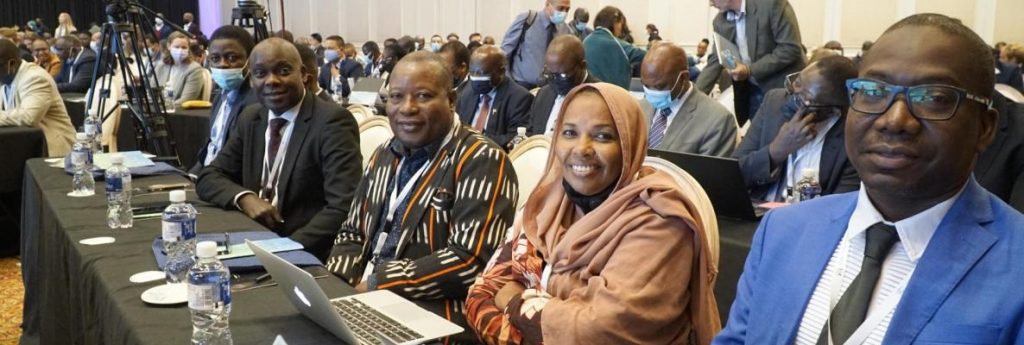Experts meeting at the Botswana Global Adaptation Week 2022 discussed key ways to implement crucial action to adapt to the increasing impacts of climate change, such as droughts and floods, and to build resilience to future impacts.

The meeting, which took place from August 22 to 26, was a major adaptation-related event of the year and was attended by more than 500 leading experts from governments, non-governmental organisations and the private sector.
Transformative and innovative approaches to climate change adaptation were showcased at the event, ranging from the deployment of big data to better flood management and sustainable food and agricultural systems.
Discussing these examples provided an opportunity to make progress in formulating and implementing countries’ National Adaptation Plans (NAPs) – one of the key pillars of the Paris Agreement – and in exploring scenarios for future resilience to climate change.
Ovais Sarmad, Deputy Executive Secretary of UN Climate Change, said: “In order to ensure that successful measures are undertaken to adapt to the impacts of climate change, we need to involve not only governments, but all stakeholders, companies, partners, and even individuals: humanity needs significant and well-coordinated efforts by everyone.”
“The National Adaptation Plans are the primary way to lead us all in the same direction. Through them, we can scale up actions and enhance investments in building the resilience of all of society and the globe,” he added.
Hosted by the Government of Botswana, the event encompassed three parallel events: NAP Expo 2022, Resilience Frontiers initiative brainstorming session and UN4NAPs Forum. The events are followed by the 42nd meeting of the Least Developed Countries Expert Group (LEG 42) from August 29 to 31, also in Gaborone.
Building resilience to climate impacts
The NAP Expo featured a high-level segment attended by Dr Mokgweetsi E.K. Masisi, President of the Republic of Botswana. The President pointed out that the event – the first of its kind in Africa – and the hosting of the NAP Expo was very timely for Botswana. Given the mounting climate change impacts on key economic sectors, particularly on rangelands, water, health and biodiversity, the country is aggressively pursuing a transformational agenda for resilience building, including use of data to inform decision-making.
“As part of the NAP Expo, I want to believe that sufficient guidance is provided to countries like Botswana for them to develop very sound and implementable National Adaptation Plans. These plans remain resource mobilisation tools in the field of adaptation and must be developed in such a way that they are able to give birth to bankable projects,” he said.
The Government of Botswana presented major investment programmes to build resilience, such as the expansion of damming and water pipelines from the north to the south to address water scarcity. Although Botswana does not yet have a NAP, progress has been made to advance the implementation of adaptation projects which cover water, ecosystems and climate-smart agriculture projects and early warning systems.
Transformative approaches to adaptation
The NAP Expo featured keynote talks on climate science, major economic and social systems and related topics to share latest innovations under the general theme of transformations to adapt. This included how to transform our food systems to de-risk livelihoods and value chains and reduce emissions through diets and in value chains.
It also featured key examples of frontier technologies to access and apply climate and socio-economic data and information, such as the use and application of Big Data and Artificial intelligence for both vulnerability and risk assessment. Big data, if generated properly, offers major potential for adaptation – from establishing baselines to generating analysis on impacts and future conditions, implementation of concrete adaptation actions, and in monitoring and evaluation.
On the important issue of funding for NAPs, the Expo provided a platform for countries to engage directly with the Green Climate Fund on specific issues relating to accessing such funding. Timely and scalable access to financing for developing countries is a critical component to unlock countries’ progress towards successful adaptation.
The President appealed to institutions such as the Green Climate Fund, the Global Environment Facility, the Adaptation Fund, the Commonwealth Climate Finance Access Hub and others, to provide vulnerable countries, particularly in Africa, with technical and financial resources to develop sound and bankable NAPs.
